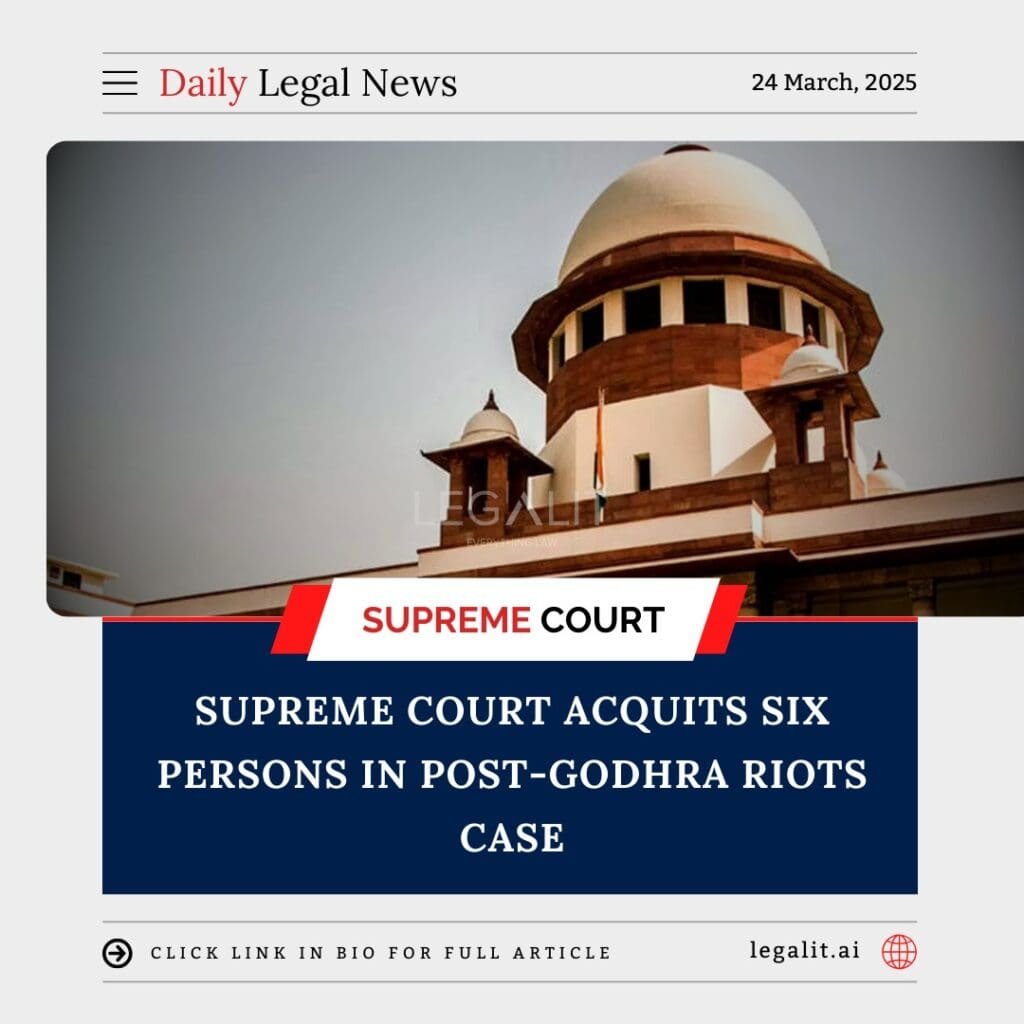
Background
The Supreme Court has acquitted six individuals who were previously convicted in connection with the post-Godhra riots. These riots occurred in 2002 following the burning of a train at Godhra station in Gujarat, which resulted in the deaths of 59 Hindu pilgrims. The subsequent communal violence led to widespread unrest and significant casualties. The acquittals come after years of legal proceedings and multiple appeals.
Court’s Rationale
- Lack of Evidence
- The Supreme Court found the prosecution’s evidence insufficient to establish the guilt of the accused beyond a reasonable doubt.
- The court highlighted inconsistencies in witness testimonies and the absence of direct evidence linking the accused to the violence.
- Credibility of Witnesses
- The bench questioned the reliability of key witnesses, noting contradictions in their statements.
- The court emphasized that criminal convictions cannot be based on doubtful or unreliable evidence.
- Failure to Meet the Burden of Proof
- The judgment underlined the principle that the burden of proof lies with the prosecution to demonstrate the accused’s guilt.
- The court ruled that the evidence presented did not meet the threshold for a criminal conviction under the law.
Existing Measures on Riot-Related Prosecutions
- Special Investigation Teams (SITs)
- Following the post-Godhra riots, the Supreme Court appointed SITs to re-investigate cases and ensure impartiality.
- These teams have played a crucial role in revisiting closed cases and ensuring the prosecution of key offenders.
- Victim Compensation and Rehabilitation
- Various legal provisions allow compensation for victims of communal violence.
- The National Foundation for Communal Harmony and state governments have implemented rehabilitation measures for riot victims.
- Judicial Oversight
- High courts and the Supreme Court have maintained strict oversight in high-profile communal cases to prevent miscarriage of justice.
- Special fast-track courts have also been established for cases related to large-scale communal violence.
Implications of the Judgment
- Precedent for Future Riot Cases
- The ruling sets a precedent on the necessity for conclusive evidence in riot-related prosecutions.
- It emphasizes the importance of fair trials and the presumption of innocence until proven guilty.
- Impact on Victims and Families
- The acquittals may raise concerns among victims’ families regarding the justice delivery system.
- It may also prompt further legal and public discourse on the handling of communal violence cases.
- Legal Standards for Criminal Convictions
- The judgment reinforces the principle that mere suspicion cannot substitute for legal proof.
- It calls for stronger investigative procedures to ensure justice while upholding the rights of the accused.
Conclusion
The Supreme Court’s decision to acquit six individuals in the post-Godhra riots case highlights the judiciary’s commitment to upholding legal standards and ensuring that convictions are based on credible and substantial evidence. This ruling has far-reaching implications for the legal handling of communal violence cases, reaffirming the principle that justice must be delivered without compromise on the rights of the accused.